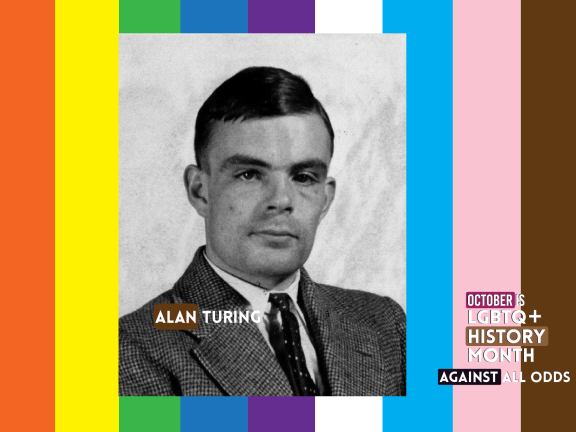Alan Turing - Against All Odds

Alan Turing was born on June 23, 1912, in Maida Vale, London, into a well-educated family. From an early age, Turing displayed an extraordinary aptitude for mathematics and science, though his natural curiosity often clashed with the traditional expectations of the British schooling system.
Turing continued his studies at King’s College, Cambridge, where he excelled in mathematics, eventually becoming a fellow of the college in 1935. His work during this time laid the foundations for his groundbreaking contributions to theoretical computer science.
As war engulfed Europe, Turing’s intellectual prowess became critical to Britain’s efforts during World War II. In 1939, Turing joined Bletchley Park, the British code-breaking center, where he played a central role in deciphering the German “Enigma” code, an encryption system used by the Nazi military to secure communications. By designing the “Bombe”, a machine that could systematically decipher Enigma-encrypted messages, Turing’s work provided the Allies with crucial intelligence that is believed to have significantly shortened the war and saved thousands of lives.
However, while Turing’s professional achievements were groundbreaking, his personal life was marred by tragedy. Turing was openly gay at a time when homosexuality was criminalized in the United Kingdom. In 1952, following an investigation into a burglary at his home, Turing was arrested and charged with "gross indecency" for his relationship with another man. Faced with imprisonment, Turing agreed to undergo chemical castration—a treatment involving hormone injections designed to suppress his libido. The punishment took a severe toll on his physical and mental health.
On June 7, 1954, Turing was found dead from cyanide poisoning in his home in Wilmslow, Cheshire. Though the official inquest ruled his death a suicide, some have speculated that it could have been accidental. Regardless, the tragedy of Turing’s personal life stood in stark contrast to his towering intellectual legacy.
Today, Alan Turing is celebrated as one of the founding figures of computer science and artificial intelligence. The “Turing Award”, considered the highest honor in computer science, bears his name and recognizes those who make significant contributions to the field. Turing’s life and work continue to inspire generations of scientists and serve as a reminder of the extraordinary potential of human intellect, as well as the devastating consequences of societal intolerance.
October is LGBTQ+ History Month and this year we are spotlighting “Against all Odds”. These icons all achieved incredible success in spite of resistance, systematic barriers, and cultural norms. Demonstrating remarkable courage and resilience as they fought for a more accepting and inclusive world.


